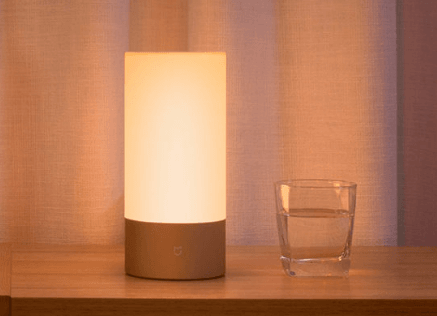Xiaomi has long been rumored to be bringing its smartphones to the U.S. Now, it appears that its smartphone plans have taken a back seat as it is now working to bring Xiaomi smart home products to the U.S.
At the Google I/O 2018, the Chinese company announced that it is adding Google Assistant support to its three smart home products, and will launch them in the U.S. This can be seen as another evidence of an improved relationship between the two tech firms, which together launched the Android One handset last year.
The three Xiaomi smart home products are: Mi Bedside Lamp, Mi LED Smart Bulb and the Mi Smart Plug. The Mi Bedside Lamp and Mi LED Smart Bulb offer 16 million color options, while the Plug can connect any appliance to your network. All three products can be controlled via Google Assistant.
In a blog post, the Chinese company said that our “smart home products will now work with the Google Assistant, allowing users to control products through a smart speaker, like the Google Home, or with the Google Assistant app.”
According to Xiaomi, its Mi Bedside Lamp can be easily configured to fit any environment, and can also be controlled by the touch-sensitive panel at the top and the Mi Home app. Talking of the Smart Bulb, the company says it can add color to any room, and with support for Google Assistant, users won’t have to get out “bed to turn off the lights and can also control brightness and color temperature verbally.”
Xiaomi’s smart Wi-Fi Plug helps users to turn on and off “non-smart” gadgets using the app, or by giving a voice command via Google Assistant. Apart from this, not much information is available of Xiaomi smart home products, including their U.S. pricing details. The Mi Bedside Lamp is scheduled to arrive later this month, but the other two products are listed as coming “shortly.” The Chinese company is promising to release more products going forward.
These three Xiaomi smart home products represent only a fraction of Xiaomi’s products that it sells in countries like China and India. Presently, Xiaomi has an almost negligible presence in the U.S. except for accessories and fan merchandise. However, by adding Google Assistant support, the company is presenting its products as a viable option to U.S. buyers.
Talking of the Xiaomi smartphones, CEO Lei Jun recently said that the company is working to launch its phones in the U.S. soon. However, it had made similar promises in the past as well. “We’ve always been considering entering the U.S. market. We plan to start entering the market by end 2018, or by early 2019,” Xiaomi CEO, Lei Jun, told the Wall Street Journal a few months back.
The Chinese company had probably postponed the launch of Xiaomi smartphones, considering what other Chinese companies had to go through when they tried launching their phones in the country. It understandably doesn’t want to take any risk ahead of its billion-dollar Hong Kong IPO.
Interestingly, Xiaomi’s IPO prospectus has no words on Xiaomi smartphone plans for the U.S. However, the Chinese company does mention its plans to move further into Europe and Southeast Asia. A few days back, the company revealed plans to expand into France and Italy, and also partnered with Hutchinson to expand into more markets.
Both Xiaomi and Huawei are growing strong in Europe despite dropping sales of the smartphones and the presence of well-known brands. According to the research firm Canalys, smartphone shipments in Europe dropped 6.3% in the first-quarter this year. Though Samsung and Apple are the top smartphone brands in the region, their shipments dropped 15.4% and 5.4% respectively.
On the other hand, Huawei grew nearly 40%. The Chinese company has been selling phones in the region for the past few years now, and also provides telecom equipment in the continent. Further, Xiaomi, which is relatively new in Europe, is already the fourth largest vendor. The first-quarter of 2018 was the first time Xiaomi was ranked as a top-five vendor across the continent.
Though the company focuses on selling affordable phones, it is among the few smartphone makers to offer a custom chipset for a better user experience. According to TechCrunch, the Chinese company has developed a powerful patent portfolio, thanks to its deals with Microsoft and Nokia. Its patent portfolio will surely make it somewhat easier for the company to launch Xiaomi smartphones in the U.S.





